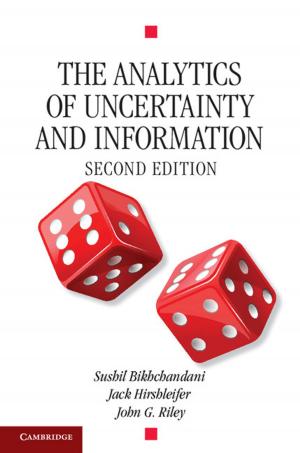The Political Power of Protest
Minority Activism and Shifts in Public Policy
Nonfiction, Social & Cultural Studies, Political Science, Politics, Practical Politics, Government| Author: | Professor Daniel Q. Gillion | ISBN: | 9781139611091 |
| Publisher: | Cambridge University Press | Publication: | April 15, 2013 |
| Imprint: | Cambridge University Press | Language: | English |
| Author: | Professor Daniel Q. Gillion |
| ISBN: | 9781139611091 |
| Publisher: | Cambridge University Press |
| Publication: | April 15, 2013 |
| Imprint: | Cambridge University Press |
| Language: | English |
Gillion demonstrates the direct influence that political protest behavior has on Congress, the presidency and the Supreme Court, illustrating that protest is a form of democratic responsiveness that government officials have used, and continue to draw on, to implement federal policies. Focusing on racial and ethnic minority concerns, this book shows that the context of political protest has served as a signal for political preferences. As pro-minority rights behavior grew and anti-minority rights actions declined, politicians learned from minority protest and responded when they felt emboldened by stronger informational cues stemming from citizens' behavior, a theory referred to as the 'information continuum'. Although the shift from protest to politics as a political strategy has opened the door for institutionalized political opportunity, racial and ethnic minorities have neglected a powerful tool to illustrate the inequalities that exist in contemporary society.
Gillion demonstrates the direct influence that political protest behavior has on Congress, the presidency and the Supreme Court, illustrating that protest is a form of democratic responsiveness that government officials have used, and continue to draw on, to implement federal policies. Focusing on racial and ethnic minority concerns, this book shows that the context of political protest has served as a signal for political preferences. As pro-minority rights behavior grew and anti-minority rights actions declined, politicians learned from minority protest and responded when they felt emboldened by stronger informational cues stemming from citizens' behavior, a theory referred to as the 'information continuum'. Although the shift from protest to politics as a political strategy has opened the door for institutionalized political opportunity, racial and ethnic minorities have neglected a powerful tool to illustrate the inequalities that exist in contemporary society.















